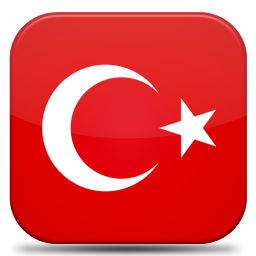Talât S. HALMAN
Translated by Ülkün Tansel
The question of the Turkish literature appearing in foreign languages is one that has occupied the minds and mouths for decades. In spite of the increasing efforts in recent years, our written and verbal literature has not had the opportunity to enjoy the attention it deserves abroad through its past works and new creations. This is, perhaps due to inferior, incompetent and tasteless quality of some translations. Unfortunately, even the well translated works do not generally draw attention of the foreign reviewers and readers. Particularly those translated into English lag behind in sales compared to those in France, Germany, Russia and the Scandinavian countries.
This problem has some deep rooted causes in the Anglo-American world: One reason is the misconception that Turks have not developed a civilization and hence have not created a unique culture and literature. Second, is a dilemma which our modern literature has not been able to cope with: Some of our creative work is so parochial and national that when they are translated they appear exotic as to sound peculiar and inferior. Majority of those Western oriented ones suitable for translation are doomed to be called imitation and disdained as poor copies.
The following basic discrepancies between Turkish and English are also significant: Variations in the cultural climate and the system of values; differences in the morphology of the language, the sentence structure and the rhythms; the smooth sounding of Turkish in contrast to staccato sounding of English…
The most stubborn -in other words, the most troublesome- pieces for the art of translation are the types that are rated as “untranslatable.” The three types that resist translation most -due to the nature of the material and their unique properties are, in my opinion:
- Folk poetry
- Folk tales and their introductory poems
- Humor
Our folk poetry is so imbued with characteristics of colloquial Turkish and has acquired images and sounds so unique to its own locality that we are often unable to find their equivalents in other languages. Even if we do find their equivalents, they sound artificial, far-fetched and tasteless. Equivalents to many of our folk speech, expressions, unique idioms are either few in number in the English language or they are insufficient. How can the following lines be translated into another language without compromising its exquisite rhythm, rhyme and its condensed wisdom?
Mal sahibi, mülk sahibi
Hani bunun ilk sahibi
Mal da yalan, mülk de yalan
Var biraz da sen oyalan
How can you transcribe into English the expressions, the color and the lithe sounds of Karacaoğlan?
There is a handful of successful translations from Yunus Emre; but, from the folk poetry of the last four hundred years I have not yet seen a single successful translation. As for those which I myself have translated, I know bitterly how awkward they are. Therefore, I have been saying for years that it may be possible to translate our folk poetry into other languages; but, it is futile to try translating them into English. If one day a genius comes along and succeeds in doing the impossible, that is another matter. If a miracle comes about we would, no doubt applaud it.
For the folk tales and thir introductory poems, the same observation can be considered valid. Admitted, with some of our folk tales (particularly, those translated and adapted by Barbara Walker, Warren S. Walker and Ahmet Uysal) some very good results have been achieved in English; nevertheless, folk tales are a type that resist translation; not to mention the introductory poems to the tales which cannot be successfully translated from one language into the other.
There is a deep-rooted prejudice which says that humor cannot reach beyond national boundaries. The problem of “untranslatability” in humor and satire molded with play on words is immense especially between languages from different cultural environments. Consequently, while political and lyrical poetry and poems of love and philosophy are beautifully transcribed into Turkish, how small are the number of successful translations of humor and satire poetry. İs it not so? The fact that Aziz Nesin’s short stories do not receive attention and find a publisher in England and USA is to a great extent due to this discrepancy between our cultures.
In one of Oğuz Tansel’s discourses on poetry where he emphasizes certain characteristics concerning the principles and ideals of the art of poetry, it is as if he is describing a panorama of the problems for translation:
“A. Poetry should; base its feet on the society’s, the country’s historical realities; and should embrace with its hands and arms, that country’s mountains, plains and the social and economical geography.
- It should turn to the folk tales, songs, mythos and folkloric creation and should get its ferment from these.
- It should mold feelings and thoughts, social and human problems guided by social realism, in line with a contemporary world view.
In other words: Art in general, and poetry in particular should be based on the history, geography and folklore of the society where the artist lives. I believe that it is under these conditions that art can be lasting and can resist time.”
This condensed aesthetics of Oğuz Tansel advocates a national-universal combination by underlining history-geography, folkloric elements, realism and international conception. As he has clearly indicated, “Some critics and some poets may not share what I have laid out.”
The debate on these concepts of aesthetics and strategies of creativity has been continuing for centuries and is, perhaps never going to end.
Can a work of art be lasting solely on the basis of these principles? That is another question. Works not directly related with the society, history, economical geography, folk tales and songs, human problems, social realism can be immortal. The most outstanding example is Shakespeare’s sonnets. Is it not? On the other hand, are there not countless number of poems and works which have gone out like a flimsy flame of straw, in each land and language, in spite of the fact that they were dedicated to the principles emphasized by Tansel?
I am concerned about something else: By means of the aesthetic formulated by Tansel, a work of art can either be long lasting or short lived. Leaving this aside, the three points A, B, C which I have quoted from Tansel seem to lay out the map of “untranslatability” before us. The more poetry or (literature in general) is molded with local and national elements and images, the more it limits or hinders itself in terms of translation.
The first two points A and B embrace the work with “local colors” to such an extent that, in many instances point C can no longer project it towards universality. In a sense, it is this local quality in Yaşar Kemal’s magnificent works which prevents them from being wholly evaluated in the Anglo-American sphere. The fact that Oğuz Tansel’s works have not been sufficiently translated into other languages is also intertwined with the same problem. Because, Tansel poetry, folk tales, children’s literature and humor is so intimately wrought with the particularities of the Turkish language, of our popular culture and of our world of myths that translators are left helpless. To find the same characteristics, the same tastes in other languages is not so easy or perhaps impossible.
Take for instance the beautiful yield of poems in his complete poems published under the title of Sarıkız Yolu. For the translator, they are a “Harvest Waiting to be Winnowed.” But too many translators would consider it a futile winnowing action to attempt translating them and realize that they would be spoiled as they were hurled into another language. Would it ever be possible to translate poems like “Çarşı” , “ Mavu Boğaz”, “Yol” , “Keler Göz” without ill-treating them?
A brilliant translator would be able to translate majority of the tales of Tansel, “the maestro of tales” into another language brilliantly and fluently, I believe. But, as for his book of tales Al’lı ile Fırfırı which is a masterpiece and which received the Children’s Literature Award given by the Society of the Turkish Language, I am afraid it would lose of its beauty and power, whoever were to translate it.
Bektaşi Dedikleri which he prepared together with Metin Eloğlu is an outstanding work of satire in poetry form. These Bektashi gems which I have read time and again over the years, go hand in hand and shoulder to shoulder with the Nasreddin Hoca Fıkraları by Orhan Veli Kanık and Kemal Özer and La Fontaine’den Fıkralar by Sabahattin Eyüboğlu in the Turkish language. During these days when bigotry is running high, I wish that it be published again and let the Bektashi satire project its light upon the deepening darkness.
However, can one transfer the Bektashi culture -these witty remarks molded with the characteristics of Turkish and the smiling face of a nation- to a different climate? Would they not wilt and would that face not droop? Perhaps an extraordinary translator or a an adapter or a transcriber can succeed. Yet it is obvious that the task is unusually difficult. Take for instance, the humorous anecdote titled “Debt.” Who would dare to translate it?
Hatırı sayılırlardan biri, namaz-niyaz sohbetinde
Bektaşiye sorar, iğneli azıcık:
“Borcun var mı Erenler*”
“Var ya, köşedeki bakkala on liracık…”
“Yok canım öylesi değil, namaz borcun diyecektim de…”
Bizimkinin iğnesi çuvaldızdan beter:
“Ha bak onu Tanrı sorabilir ancak;
Senin soracağın bakkal-çakkal borcudur,” der.
(Tansel, Eloğlu 2008)
DEBT
An influential man in his chat on prayers and such,
Asks Bektashi needling him a little:
“Do you have debts Father?”
“Yes I do, 10 or so lira to the corner grocer.”
“Not that, I meant to say your prayer debt.”
Our man’s reply is worse that the sacking needle:
“Hey Look, that’s for God to ask;
what you can ask is corner grocery debts and the like.”
Jacobson, Joseph Dervish Bektashi Gems (unpublished).
Can “Aydın Oğlu Aydın,” one of the most forceful poems of satire of our language be conceived in another language?
Koyun bakışlı çatal dilli
Sözde aydın oğlu aydın
Kepçe kepçe karıştırır ortalığı
Sade suya tirit düşünceleri
Kazanı yalan dolan kaynar
Gündüzü gece eder kuş beyni
İsterse öküz altına buzağı kor
Fil doğurtur karıncaya
Aydın oğlu aydın
Karga oğlu karga (Tansel, 1962, 1986 and 2013)
Perhaps a creative translator who excels both in Turkish and in the English language might adapt “Aydın Oğlu Aydın” as if writing it anew… A master in adaptation like Prof. J. Jacobson might perhaps come up to treat skillfully some of the Bektashi anecdotes; but, to express Tansel’s lyrical poetry seething with Anatolia and Turkish, in English is full of insurmountable obstacles.
It is, I believe, because of these difficulties that Tansel has not so far been translated into English and other languages.
As far as I know, it was İlyas Halil who had, many years ago, done the first translation: The English translation of this poem titled “Mayku” was published only in Turkey.
Six poems -“Mutluluk Peşinde”, “Salkımsöğüt” , “Mayku” , “Selâm” , “Mavu Boğaz” , and “Çağrı” – translated into English by Tansel’s daughter Prof. Dr. Aysıt Tansel have been included in a separate section at the end of his volume of collected works titled Sarıkız Yolu.
Two translations “Tutsağın Türküsü” and Salkımsöğüt- which Aysıt Tansel did with assistance from J. D. McClatchy, Nilüfer Mizanoğlu Reddy and J. Ian Richards, were set to music by Chairman of the Music Department of the University of Wilkes Barre in Pennsylvania Dr. Bruce Reiprich and performed by soprano Eileen Hanisch in accompaniment of the String Quartet DaPonte in 1994 and the translations appeared in the concert program. In 1990, again Dr. Reiprich’s compositions -where he used Tansel’s poems translated into English- were performed not only in Pennsylvania but also in North Dakota.
Tansel’s poem “Düğüm” translated by me under the title “Knot” appeared on page 412 of the anthology of Turkish poems “Contemporary Turkish Literature” which I published in 1982 in the United States.
The fact that so little of Tansel’s work plus hundreds of our other poems, folk tales and humor has been translated or is in the process of being translated into widely used languages troubles me and remains as bitterness inside me. Tansel’s merit has not been recognized and is not being recognized in Turkey either. I hope that the book you are holding removes this injustice.
Turkish literature is still a disregarded son in-law on the world stage… Much of the reasons behind this is related to the grudge fostered against our history and culture; to the differences in civilization and awareness and to the discrepancies between languages…Some generate from Tansel’s conception of the aesthetics of poetry; namely, the obstinate untranslatability of unique values, characteristics and originality.
Based on a trust for the value and power of our literature, we can look forward with optimism to the future of the art of translation. The Turkish creativity shall sooner or later be liberated from remaining in darkness in so many corners of the world. We can have faith on poetry and translation.
In the dramatic life of the French poet Robert Desnos we can perhaps find a similitude.
A Frenchman disclosed Desnos to the Nazis, saying that “he is a dangerous man. He is a terrorist and a communist!” The Nazis took the renowned poet first to Buchenwald and then to Auschwitz. When Germany surrendered, a young Czechoslovakian student of medicine named Josef Stuna was deployed to the concentration camp to treat the sick prisoners. Going over the list of prisoners he noted the name Desnos and said to himself: “Could this, by any chance, be the poet, translations of whose poems I had read in the Czech language before the war?” Among hundreds of prisoners he searched for and spotted Desnos. He asked him: “Do you happen to know poet Robert Desnos?” What a far-fetched coincidence. The poet was amazed and joyfully he said, “I am poet Robert Desnos!”
Turkish literature will sooner or later be recognized, studied and be liberated from the continuing external darkness.
Translator’s Note: Some of the poems in this essay are not translated since they are deemed as untranslatable by the author.
Bibliography:
Halman Talat S. (1996) “Tansel’de Öz ve Özgünlük,” Üç Kanatlı Masal Kuşu Oğuz Tansel, (Edited by
Metin Turan), First edition, Ankara: Ürün Yayınları.
Jacobson, Joseph “Debt,” Dervish Bektashi Gems, (unpublished)
Tansel, Oğuz, Eloğlu, Metin (2008) “Borç” Bektaşi Dedikleri, İstanbul: Evrensel Basın Yayın.
Tansel, Oğuz (1962) “Aydın Oğlu Aydın,” Gözünü Sevdiğim, Ankara: Dost Yayınları.
Tansel, Oğuz (1986) “Aydın Oğlu Aydın,” Sarıkız Yolu, Ankara: Yaz Yayınları
Tansel, Oğuz (2013) “Aydın Oğlu Aydın,” Mutluluk Peşinde, İstanbul: Evrensel Basım Yayın



